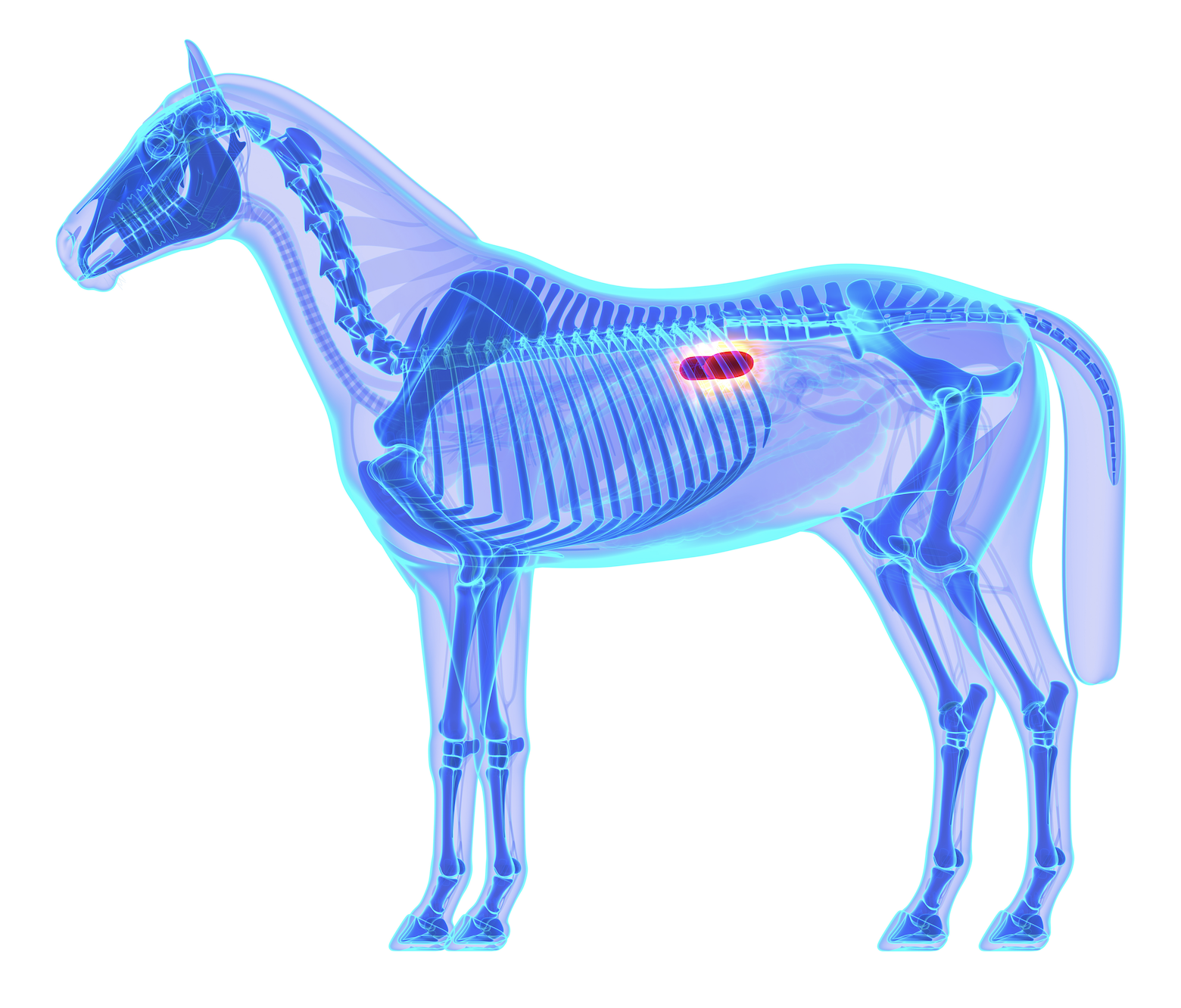Can severe tying up lead to future kidney problems?
- September 28, 2025
- ⎯ EQUUS
Question:
I am considering purchasing a mare for my young daughter. The mare is well trained and seems like a good fit for the job. I do have one reservation, however. The mare “tied up” several years ago and was hospitalized. She was very sick for weeks. I’m concerned about possible kidney damage from that episode. Is there a way to test for this? Should I be concerned, considering she successfully returned to the show ring and has been healthy since? If we keep her for years, can we expect complications as she ages?
Answer:
The fact that the mare returned to the show ring and has been healthy since her episode of tying up is good news. But it does not reflect the health status of her kidneys. Mild renal dysfunction could have no discernible effect on a horse’s athletic performance. In fact, we have not yet determined just how severe renal dysfunction would have to be to have an impact on performance. So I would highly recommend diagnostic testing that evaluates this mare’s kidney function.

Mild renal dysfunction could have no discernible effect on a horse’s athletic
performance. (Adobe Stock)
Kidney function testing
The first procedure to perform is a blood workup that includes the parameters commonly used to assess renal function: creatinine concentration, blood urea nitrogen (BUN) and electrolytes. Changes in kidney function are better reflected by creatinine concentration than BUN. The latter can be affected by non-renal factors, such as transient dehydration, dietary protein or medications. In addition, creatinine and BUN are imperfect indicators of decreased renal function because those values typically don’t exceed the normal range until glomerular filtration rate—that is, the amount of blood that passes through the kidney’s tiny filters (glomeruli) each minute—is reduced by 75 percent or more.
If the mare’s creatinine value is normal, I would say that her tying-up history had no significant effects on her renal function. Nor would I recommend other urinary tests.
On the other hand, if the mare’s creatinine concentration is elevated (hypercreatinemia), I would advise further investigation. The diagnostic sequence would entail a series of tests and imaging. Namely, urine-specific gravity (normally between 1.020 to 1.050), urological and renal ultrasonography. Additional monitoring may be advisable. A single creatinine value is insufficient to evaluate the evolution of renal function. Therefore, multiple creatinine readings will be necessary to provide a more complete picture of kidney function.
Age and renal function
Your question about the effect of age on the renal function is very interesting. There is some evidence that renal function decreases with age in different species, including humans, and kidney disease develops over time. In horses, episodes of acute kidney injury tend to be seen more often in older horses compared to younger ones, but there is no clear evidence, to my knowledge, that renal diseases are indeed more frequent in older horses.
Although there are currently no specific guidelines for renal parameter evaluation over time, my recommendation would be to measure this mare’s creatinine in a blood workup each year to be on the safe side in detecting early onset of kidney disease.
Daniel Jean, DVM, PhD, Dipl. ACVIM
Department of Clinical Sciences
University of Montreal
St-Hyacinthe, Canada
Our expert
Daniel Jean, DVM., PhD, Dipl. ACVIM, has been a professor of equine internal medicine at the University of Montreal since 2001. Previously, he served as associate professor at the equine hospital of the National Veterinary School of Alfort (France). Jean is board-certified in large animal internal medicine, and his main areas of research are digestive immune cell population and urinary diseases.
Don’t miss out! The free weekly EQUUS newsletter delivers practical and interesting horse health information right to your in basket! If you’re not already receiving the EQUUS newsletter, click here to sign up. It’s *free*!





